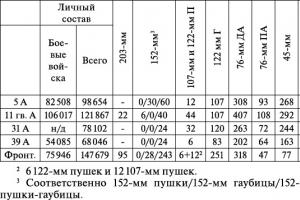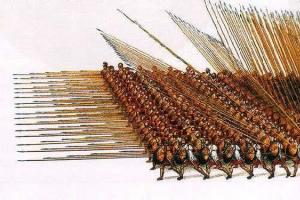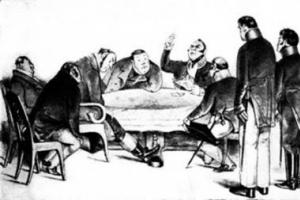To live according to conscience, in harmony with nature - you can often hear such a recommendation, and in general, everything seems to be extremely clear here. But if you try to figure out what exactly this means, many questions arise. Let’s assume that with the recommendations to “live in harmony with nature,” everything is more or less clear, although here, too, sometimes there are various misunderstandings that sometimes don’t fit into your head.
For example, a person may claim that he does not eat meat, but in reality it turns out that in his understanding fish, seafood, and sometimes even chicken do not belong to meat. Apparently they grow on a tree. Therefore, on the issue of living “in harmony with nature,” there are also many misunderstandings. However, in general, everything is clear here - do not harm living beings. The concept of “harm” is also a relative concept, and everyone puts something of their own into it, but we won’t go deeper.
Much more interesting is the question of what is conscience? And what does it mean to “live according to conscience”? Remember when you were a child? It happens that you commit some unpleasant act, and your parents immediately ask a rhetorical question in a sort of stern voice: “Do you have a conscience?” And you stand there and don’t know what to answer. You intuitively feel that you can’t answer “No,” but saying “Yes” is also stupid, because at that age you don’t really know whether you have it, this conscience, or not. And anyway, what kind of beast is conscience? So you stand there, silent, bored... And the angry parent continues to throw rhetorical questions, telling you something like: “Am I talking to the wall?” You really don't feel at ease here. And it’s no longer time to ask whether you have a conscience - it would be better to get out of such a mess and get away with a couple of hours in one of the corners of your home.
However, the years go by. The understanding of good and evil is changing. And sooner or later we begin to understand at some deep level what conscience is. No, we may read it in the dictionary, and the teacher at school will tell us something about conscience, but this is not the same, this is all, as they say, from the mind. And understanding of conscience must come from the soul, from the heart. And it is at some deep level that we begin to distinguish what it means to “live according to conscience” and what it means vice versa. This true feeling, this true knowledge is in each of us. You can’t read about it in books; this understanding either exists or is hidden under a layer of our delusions and delusions.
The first time conscience manifests itself in deep childhood, we, of course, do not know that this is what it is - conscience. But we are starting to feel it. This is the feeling when, for example, having kicked a harmless and defenseless kitten, we then feel dirty in our souls all day. And at night we can't sleep. We do not yet understand what is happening to us, but it is important that it is happening.
Years go by... And each of us goes our own way. Someone crushes this conscience within themselves. He kicks her like a stray dog every time she tries to bark at us or bite us at the moment when we commit an unworthy act. And someone, on the contrary, cultivates this conscience in himself, begins to listen to it, begins to synchronize his entire life with its voice. And such conscience becomes a person’s natural state, his natural understanding of what is good and what is bad.

This is not the understanding that is sometimes gleaned from some smart books. The “bookish” understanding of conscience often becomes simply a dogma, and such a person puts everyone, as they say, “with the same brush”... Instead of a conscience, such a person has some kind of bookish-religious formula that divides this world into black and white. And everything that doesn't look like black is white, and everything that doesn't look like white is black. But this world is diverse, and there are many shades in it. Therefore, this position towards him is fundamentally wrong. This is important to understand.
The meaning of the word "conscience"
We can talk for a long time about what conscience is not. But what does this word mean - conscience? What is conscience? What is its definition? What is the origin of the word "conscience"? The word itself contains the key to unraveling this mysterious phenomenon, which cannot be seen, touched, or studied from a scientific point of view.
The word “conscience” consists of two words: “with” and “news”. This means “common message.” And the question arises: jointly with whom? There can be many versions, but one of the options is joint with the Universe, with all living beings in it. And the word “news” can be interpreted as “knowledge”. Thus, the word “conscience” means “knowledge shared with the Universe.”

Knowledge of what? Yes, everything is about the same thing - about good and evil, about moral behavior, about the world order - the list can be continued endlessly, but all these are just verbal formulas, mental concepts, philosophy. And conscience, as has already been said, is not a book formula, but a true, unchanging quality of the human soul.
Sometimes they say about a person: “No shame, no conscience.” And you can find an even more interesting option, when a person is even proud of it. At one time there were very fashionable T-shirts with the inscription “No shame, no conscience. Nothing extra". I just want to add - “no brains.” In fact, in modern society, conscience has long become ballast for the majority. Because it contradicts those generally accepted concepts that are actively propagated in modern society. For example, will conscience be an assistant on the path for a person who has accepted the life paradigm “take everything from life” or is inspired by the slogan “go ahead”? The question is rhetorical.
To follow such ideas, conscience must be suppressed in early childhood. And unfortunately, the majority is following this path today. What result will they get? It's not hard to guess. As a rule, approaching old age, such people either “see the light”, but it is often too late, or an even worse option - even in old age they do not accumulate any life wisdom. Such people become grumbling old men who hate everyone and everything and blame the world around them for their problems. But the problem is that initially a dead-end path of development was chosen - “no shame, no conscience.”

Proverbs about conscience
Our ancestors knew how important conscience is in our lives and reflected this knowledge in very eloquent proverbs:
- Conscience has no teeth, but will gnaw.
- For conscience and honor - even to cut off your head.
- Where there is shame, there is conscience.
- Conscience is the eye of the people.
- He has the shame of a hair on a stone.
- If you lose money, you can make money. If you lose your conscience, you will find out trouble.
- The dress is black, but the conscience is white.
- You can hide it from a person, but you can’t hide it from your conscience.
- Conscience is no story: you can’t put it in the archives.
- Without arms, without legs - a cripple, without a conscience - half a person.
- If you lose your conscience, you won’t be able to buy another one.
- Conscience doesn't let me sleep.
- Shame is under the heel, and conscience is under the sole.
- A good conscience is hateful to an evil one.
- When the conscience was distributed, he was not at home.
- An evil conscience is worth the executioner
Is conscience necessary in the modern world?
As mentioned above, in modern society, tendencies and motivations are imposed on people that are simply vitally incompatible with conscience. Therefore, a person has, frankly speaking, little choice - either to discard such “ballast” as conscience and “take everything from life”, as he is advised from all possible screens, or to choose the path of the “black sheep” and, keeping his conscience, sacrifice reputation as an “adequate” and “normal” person. What choice to make is up to everyone to decide for themselves. Everyone sets their own priorities and, what is equally important to understand, everyone ultimately gets exactly the result they deserve.

If a person lives according to his conscience, he creates reasons for them to do the same with him. This is what the golden rule of morality says: “Do unto others as you would have them do unto you.” Because this is exactly how everything works in this world - everything that we broadcast to the world - we receive exactly the same amount in return.
Therefore, cultivating conscience in oneself or suppressing it in oneself is the choice of every person. But it is important to understand the consequences of this choice. Nobody wants suffering. Nobody wants to be unhappy, sick, despised. But people, by their behavior, create the reasons for their own suffering. How to avoid this?
There is only one way - to cultivate a conscience in yourself from early childhood. But this does not mean that if this is not done since childhood, then nothing can be corrected. It's never too late to do good deeds. Therefore, at any moment you can change the vector of your development. The main thing is to have a sincere desire. And if there is this desire, it is important to awaken this very conscience in the depths of your soul.
Try to remember those first childhood experiences when you did something bad. Remember how you were afraid of upsetting your mother with bad actions or how ashamed you were when you responded rudely to someone or treated someone unfairly.
Conscience is the natural state of every person, and in childhood it manifests itself in everyone without exception. And only then does society begin to polish us, and if we show weakness and adapt to generally accepted destructive tendencies, our conscience begins to speak less and less often. But we suppressed it within ourselves. And the task of every person is to reawaken this conscience in himself.
Why does conscience preserve and protect universal human values? In fact, conscience is a guarantee of a harmonious life in this world. All good deeds and all worthy deeds are performed by those people who have cultivated a conscience in themselves. And all immoral acts, all evil is committed on earth by those who suppress this conscience, the natural state of man, in themselves.
Conscience is, in fact, the only thing that leads a person to perfection. This is the only thing that allows him to maintain his human nature. The only thing that distinguishes him from an animal. Therefore, cultivating conscience in oneself is the only path worthy of the title of Man. And lack of conscience inevitably leads to degradation. Because if a person does not have a deep understanding of what is good and what is bad, then he will inevitably indulge his animal instincts, which, in fact, are very strong in us, and only conscience allows us to control them. And if there is no conscience, then there are no “brakes”. What happens to a car without brakes? Think for yourself.
“You have no conscience!”, “I wish I had a conscience!”, “Conscience is the best controller.” "Remorse." We have heard these and many others more than once or twice in our lives. So what is conscience? Why do we need it? How do we know whether we have it or not, and how not to lose it?
Conscience is a kind of regulator of our relationships with people around us. At the same time, everyone has their own regulator. A person’s conscience is a purely individual concept, there is no standard in it, it cannot be measured and said: “My conscience is greater than yours.” It all depends on how capable a person is of regulating his moral and ethical behavior, the norms of which are different for everyone and depend on their environment, personal qualities, and life experience. At the level of feelings, conscience helps us evaluate the wrongness or correctness of actions or deeds.
Conscience: conscience in life examples
Conscience has a strong influence on our lives and can lead to serious moral suffering (especially for emotional and sensitive individuals) as a result of committing a bad or even simply wrong act towards someone. For example, we can be rude to a passenger in transport due to our irritation or lack of upbringing. A so-called “conscientious” person will apologize for his inappropriate behavior immediately or will experience “pangs of conscience” for a long time, but for an “unscrupulous” person rudeness is the norm, nothing can be done about it. We can be rude to our parents, who never tire of teaching us about life, but then we realize that we were wrong, because from childhood we were taught that being rude to elders is bad. In many situations in which we become participants every day, conscience protects and warns us from committing actions that we will later regret, as if giving an alarming signal about the fallacy, incorrectness or inappropriateness of this or that action.
What is conscience: sources of conscience
The foundations of conscience are laid in us by our parents at an early age (at 3-5 years), and the process of its formation is called upbringing. At the same time, the most important role here is played not by verbal stories about what is bad and what is good, but by the visual behavior of the parents and their reaction to the actions and actions of the baby. To cultivate a conscience in a child, you need to work hard. So, if you say that lying is bad, and then you yourself tell a lie, what can you expect from a child who believes that everything his parents do is the norm for him? If you teach a child to respect the adult generation, and then take it out on each other or on others, will the beginnings of conscience bear good fruit? If your child does something wrong, you don’t need to immediately shout: “You can’t do that!” and punish him for his crime. Explain clearly why exactly it is impossible, what negative consequences this may result in (“If you touch the hot surface of the iron, you will burn your fingers, it will be very painful, you will not be able to play with toys, draw”, “If you do not pick up the toys from the floor and If you don’t put them in place, someone will step on them and they will break,” etc.).
Shame, shame and conscience
When we condemn someone, we can say that we are shaming the person, trying to awaken his conscience. The feeling of shame is an indicator of moral behavior. It is believed that it has such a synonym as shame. This is not entirely true. Shame is actually a certain state of our soul, self-condemnation. Shame is a state of mind imposed on us, one might say, a provocation. Someone insulted us, told an unpleasant story about us, and we took it upon ourselves, we feel disgraced (and it doesn’t matter whether they told the truth or made it up). And here the person begins to gnaw at us more deeply than conscience.
What is conscience: varieties and forms of conscience
The science of morality, in particular conscience, is called ethics. Ethics classifies conscience according to:
2. Form of manifestation (individual, collective).
3. Intensity of manifestation (suffering, muted, active).
Forms of conscience are also represented by a fairly wide range of manifestations: doubt, painful hesitation, reproach, confession, shame, self-irony, etc.
How often does someone ask us to “have a conscience” or wonder whether it will torture us from certain actions. However, what is conscience? It is unlikely that anyone can confidently interpret this concept. Dictionaries cannot give a completely clear explanation, but it’s worth at least trying to understand this issue.
What is conscience?
What is conscience? Often the answer to this question is given as follows - this is the ability of someone independently determine their moral responsibilities, exercise self-control and evaluate your actions. In simple terms, it is a way to express one's moral self-awareness.
The manifestation of conscience is divided into two types. Firstly, these are certain actions that a person performs in connection with one or another moral background. Secondly, these are the emotions that he experiences in relation to certain actions - a feeling of guilt, or the so-called "remorse".
Almost everything related to this issue is shrouded in mystery. For example, how did people develop a conscience in the first place? Some scientists believe that this happened as a result of evolution, while others adhere to an intuitive theory.
Evolutionary theory is based on the fact that over time, people have noticed that their selfish actions harm those close to them, and they are blamed or punished for them. Good deeds, on the contrary, are approved. Some scientists believe that this has gradually been learned by humans to an innate level, although not everyone agrees with this.

Intuitionism
The basis of this theory is that conscience is perceived as a property of a person given to him by nature itself. In this case, the fact that the degree of development could change and improve due to a variety of conditions is not denied, but the “embryo” is considered a fact.
Innateness explains the unconditional nature of conscience, but adherents of this theory also interfere with the issue of higher powers, God, so such an explanation cannot be considered purely scientific. It retained the word “theory” only as a name, as a tribute to tradition.
Description of conscience
Having roughly described what conscience is and what it means, scientists turned to other aspects of this issue. In particular, they raised a psychological problem, identifying types and manifestations.
People's opinions differ on almost everything. Some believe that there are no manifestations of conscience in the animal world, while others hold a completely opposite opinion, and even find examples for this.
The definition is considered separately conscience of childhood. This period helps to consider how exactly the self-awareness of human actions is formed. Shame is a key component. Some scientists even believe that shame is the only manifestation of conscience. Whether this is true or not, this feeling is seen in children, and it is obvious that it is present in varying degrees. This is usually influenced by upbringing and environment.
Trying to understand what conscience means, one should not assume that it is characteristic only of highly developed people. Many scholars want to perceive savages and tribes with a low degree of culture as people who do not feel shame or guilt, but even the oldest writings of travelers easily prove the opposite.
Many peoples and tribes value shame much higher than the inhabitants of megacities, and this despite the fact that they walk completely naked. Simply put, culture and the degree of moral consciousness are practically unrelated.

Conscience and criminology
Separately, the question of what conscience is from the point of view of criminology is widely considered, and this is not surprising. It's hard to believe that it exists among thieves or serial killers. However, the decomposition of this type of self-awareness, which Despin carried out, made it possible to shed some light on its nature.
In this sense, the conscience of the crowd, the influence of the mass on the consciousness of one person, as well as psychological changes in savage people and degenerate peoples are highlighted.
Today, scientists and philosophers continue to actively discuss the issue of the emergence of conscience and its development. Some believe that such self-awareness does not change with age or joining another society, but changes occur in the mind, and it, in turn, capable of influencing conscience. She tries to break through, sending a person an unbearable feeling of guilt, shame and remorse.

Often, when committing not entirely worthy actions, a person feels negative emotions inside. A certain discomfort arises, sometimes quite strong, preventing you from continuing to exist in peace. This feeling is usually called conscience. This internal controller gnaws after negative actions, words or thoughts and brings satisfaction when the opposite behavior occurs. Although almost everyone guesses about its existence, few people can tell with confidence what conscience is, where it comes from and why it evokes certain emotions and sensations. It is worth understanding this in order.
What is conscience: popular definition
There are many interpretations of the nature of this phenomenon, explanations of what it is. A significant number of them are associated with various religious movements, where usually the specified term is understood as a certain feeling of guilt before higher powers (God) for violating the commandments given by them. An explanation is often given about the “light of truth” that prevents people from doing wrong. The popular definition of a sense of conscience that is not associated with religion implies in this case certain personality traits. Every mentally healthy and fully developed person develops an internal self-regulatory mechanism that helps formulate moral standards for the subsequent measurement of everything said and done, evaluating words and actions on their own scale of worthy/unworthy.
What are shame and conscience: innate or acquired?
Those who try to define this inner “policeman” are mainly confused about whether such a feeling is given a priori from birth or develops as one grows up, on the basis of the social influences experienced by a person, the moral principles instilled in him, accepted in a particular family or society as such. For now, this question remains open due to the lack of evidence on both sides. They agree on one thing: conscience is an internal framework formed by the person himself based on the moral principles he has adopted. Violation of such boundaries causes discomfort of varying intensity, and preservation, especially in a situation of difficult moral choice, improves self-esteem. The individual realizes that he has preserved his identity and has not allowed circumstances to trample on it.

How to explain to a child what conscience is
Parents of growing children and teachers who have to teach them in educational institutions face a similar need. Explanations must be given taking into account the degree of understanding of a particular baby and its age characteristics. When communicating with preschoolers, it is worth using specifics, giving examples available to them. One of the options: conscience is when parents forbid taking off a hat in the cold, and the child realizes that disobeying elders is bad. Therefore, when he takes off his hat, thereby violating his mother and father’s ban, he knows very well that he is doing wrong, which is why his soul hurts. You need to let the baby understand: this feeling is a helper, because it prevents you from behaving incorrectly, and you need to listen to it.
What is “conscience gnawing”
This expression hides the very range of feelings that is provoked by an act that does not correspond to the moral principles of the person himself. Its manifestations are associated with a sharp decrease in self-esteem. This appears due to the awareness of betrayal of oneself, one’s own inner beliefs. Usually the strength of such mental anguish is proportional to the severity of the offense. The range is great - from light “tingling” to real fire, bringing pain, preventing you from living fully further, especially if there is no possibility of correcting what you have done. Many people who turned into traitors or committed other vile acts, often, due to the inability to endure internal torment, dared to commit suicide.

What is remorse: a turn in a constructive direction
One should not assume that the understanding of what a person’s conscience is and its very action are destructive. Much depends on the perspective from which such moral problems are viewed. Attempts to fight manifestations of conscience, to drown it out by exposing the body to psychotropic compounds and alcoholic libations, give only a temporary illusion of peace. Misdemeanors do not go away - a person only runs away from them for a short time, so that later, as he sobers up, he feels a range of even more intensified negative emotions. It is undesirable to perceive this feeling as an enemy. A wise person will turn its manifestations to the benefit of self-development. It makes sense to use the prompts of your spiritual moral regulator to prevent undesirable actions and avoid behavior that can destroy your life. Such an approach will bring personal happiness and career growth, due to the respect of others.
Conscience
And so conscience - what is it? Let's first see what Vicki thinks about this:
Conscience is the ability of an individual to independently formulate moral duties and exercise moral self-control, demand their fulfillment from himself and evaluate the actions he commits; one of the expressions of a person’s moral self-awareness. It manifests itself both in the form of rational awareness of the moral significance of the actions performed, and in the form of emotional experiences - feelings of guilt or “remorse” [source not specified 1736 days], that is, it links together the mind and emotions.
To some extent, this is indeed true.
But let's look at it deeper, removing all the developments and raids.
We all know that there is a certain core in a person, it is not in vain that they say that a person does not change, indeed, the core is given alone for life, and it does not change. But sometimes we hear one of our friends tell us that a mutual acquaintance, what a great fellow he is, he has changed (and maybe in...
There were Darwinists who argued that conscience is an unnecessary feeling that should be gotten rid of. It is interesting to quote the words of Hitler, who, as is known, was one of the thinkers of social Darwinism (the doctrine according to which the laws of natural selection and the struggle for existence, which, according to Charles Darwin, operate in nature, extend to human society): “I liberate man from the humiliating chimera called conscience.” And further…
In ancient Greek mythology S. gets fantastic. depiction in the form of the image of Erinyes, goddesses of curse, revenge and punishment, pursuing and punishing criminals, but acting as benefactors (eumenides) in relation to the repentant. In ethics, the problem of personal socialism was first posed by Socrates, whom he considered the source of morals. a person’s judgments are his self-knowledge (ancient Greek….
There was one ancient wisdom among the people: “Even though conscience has no teeth, it can gnaw the soul.”
And it just so happened that people began to forget these words, like many other important things. But it was not in vain that our ancestors made up proverbs about conscience. They knew that without her the Russian people would be lost and they would not be happy.
So, what proverbs about conscience and duty should every person know? Why does he need them? And what is conscience anyway?
It just so happens that each person has his own conscience. "Why is that?" - you ask. Yes, because every person is built differently. Some are brought up in good families and taught goodness and order, while others are raised in evil ones. Therefore, growing up, people have different ideas about morality, and accordingly, their conscience is different.
According to psychologists, conscience is the moral and ethical rules that determine the inner world of an individual. Violation of these unwritten laws leads to the fact that a person begins to experience...
What is conscience and what does it mean to live according to conscience?
Most people have some kind of internal censor that helps them distinguish between positive and negative aspects in life. It is important to learn to listen to the voice inside yourself and follow its advice, and then it will serve as a guide to a happy future.
What does conscience mean?
There are several definitions of this concept: for example, conscience is considered the ability to independently identify one’s own responsibilities for self-control and evaluate committed actions. Psychologists, explaining what conscience is in their own words, give the following definition: it is an internal quality that gives a chance to understand how well a person understands his own responsibility for the act committed.
To determine what conscience is, it is necessary to note the fact that it is divided into two types. The first includes actions that a person performs with a certain moral background. The second type involves the emotions experienced...
People always talk about conscience, sometimes without even understanding what is meant by this concept. Let's figure out what conscience is. Conscience is often compared to a compass, which is so necessary for travelers to avoid getting into trouble. In appearance, it is a simple device with a magnetized arrow that always points north. But if it works correctly and if it is used in conjunction with a detailed map, disaster can be avoided. This is very similar to conscience. If she is properly trained, she will protect us, but only if we respond quickly to her warnings.
Different opinions about conscience
Without conscience we would be lost. There are many theories regarding the definition of conscience. For example, the Bible explains what conscience is. Literally, this word means “knowing oneself.” This ability to know ourselves is given to us by God. It turns out that we can see ourselves from the outside and evaluate our actions, decisions and feelings. Conscience not only contributes to our joy, but can greatly...
“You have no conscience!”, “I wish I had a conscience!”, “Conscience is the best controller.” "Remorse". We have heard these and many other statements about conscience more than once or twice in our lives. So what is conscience? Why do we need it? How do we know whether we have it or not, and how not to lose it?
Conscience is a kind of regulator of our relationships with people around us. At the same time, everyone has their own regulator. A person’s conscience is a purely individual concept, there is no standard in it, it cannot be measured and said: “My conscience is greater than yours.” It all depends on how capable a person is of regulating his moral and ethical behavior, the norms of which are different for everyone and depend on upbringing, social environment, personal qualities, and life experience. At the level of feelings, conscience helps us evaluate the wrongness or correctness of actions or deeds.
What is conscience: conscience in life examples
Conscience has a strong influence on our lives and can...
Following the discussions
Conscience: a brief summary of the discussion of the same name
Who among us is not familiar with our inner voice, called conscience, which either accuses us from within and oppresses us, or gives us a feeling of joy and satisfaction for what we have done!?! This is our internal controller and judge, incorruptible and impartial. Just as a hungry person cannot convince himself that he is full, and an exhausted person cannot convince himself that he is cheerful and full of strength and energy, so we cannot convince ourselves that we have acted well and correctly when our conscience convicts us of what we did wrong.
I. WHAT IS CONSCIENCE?
1. Dictionary definitions:
Ushakov's Dictionary: Conscience is an internal assessment, an internal consciousness of the morality of one’s actions, a sense of moral responsibility for one’s behavior.
Dictionary of Brockhaus and Efron: Conscience is a person’s moral consciousness, expressed in the assessment of one’s own and others’ actions, based on a certain criterion of goodness and...
1) Conscience is a category of ethics that expresses an individual’s ability to exercise moral self-control, to determine from the standpoint of good and evil the attitude towards one’s own and others’ actions and lines of behavior. S. makes his assessments as if independently of practicality. interest, but in reality, in various manifestations, a person’s S. reflects the impact on him of specific. historical, social class living conditions and education. S. does not generate, but only consolidates and reproduces those values and assessments that have been developed in society. practice, and therefore ultimately depends on the class. and societies, human belongings. Scientific atheism is opposed to nihilism. attitude towards S., considering her creatures to be a feature of the spiritual appearance of the individual, and against the attitude towards her as an unchangeable and infallible judge given to us by God. With the progress of social and cultural progress intelligence. honesty as one of the requirements of S. more and more urgently requires the rejection of relit, faith, as having no logical. and factual justifications, as well as...
Conscience is the ability of the human spirit to distinguish between good and evil, the consciousness of good and evil (St. Ignatius Brianchaninov), a natural law that requires from the human mind a life pleasing to God (St. Abba Dorotheus).
Conscience is a desirable or active force (ability) of the human spirit, pointing a person to good and demanding its fulfillment. Being closely connected with reason and feeling, conscience has a practical character and can be called practical consciousness (St. Theophan the Recluse). If the mind knows and the senses feel, then conscience, as an active force, determines the type of activity of the spirit in relation to an object cognizable by the mind and sensed by the senses.
In the word “conscience,” the root “news” together with the particle “co” indicates “communication” and “co-action.” Human conscience initially did not act alone. In man before the Fall, she acted together with God Himself, abiding in His human soul...
Social Psychology. Dictionary under. ed. M.Yu. Kondratieva
Conscience is the ability of an individual to exercise moral self-control, independently formulate moral duties for oneself, demand that one fulfill them and evaluate the actions performed; one of the expressions of a person’s moral self-awareness. WITH….
Large dictionary of esoteric terms - edited by Doctor of Medical Sciences. Stepanov A.M.
(Russian, joint message, generalized knowledge). 1. The feeling and consciousness of moral responsibility for one’s behavior and actions to oneself, to the people around him, to society; moral principles, views, beliefs. 2. In occultism – the manifestation of criteria in an individual...
Philosophical Dictionary
(shared knowledge, know, know): the ability of a person to be aware of his duty and responsibility to other people, to independently evaluate and control his behavior, to be a judge of his own thoughts and ...
What is conscience?
What is conscience and can you confidently be guided by your conscience? How does a Bible-trained conscience help you make good decisions in life?
Conscience
Walking down a busy street, you pass an elegantly dressed woman who, without noticing, drops a wad of money. Bending down to pick this one up
pack, you see a woman hastily getting into an expensive car.
What will you do? Will you call out to her or quickly hide the money in your pocket?
It depends on your conscience. What will she tell you? More importantly: can you trust her? Can you confidently guide your conscience?
Conscience is a natural sense of conviction about what is good and evil, just and unjust, moral and immoral. In the Bible, the principle of conscience is described in Romans 2:14, 15 in these words:
“For when the Gentiles, who do not have the law, do what is lawful by nature, then, not having the law...
Introduction
Even in ancient times, philosophers and sages pondered about this voice: where does it come from and what is its nature? Various assumptions and theories have been put forward. The presence of this voice created special problems for philosophers and scientists of the “new time”, who see in man only a material being and deny the existence of the soul.
There were Darwinists who argued that conscience is an unnecessary feeling that should be gotten rid of. It is interesting to quote the words of Hitler, who, as is known, was one of the thinkers of social Darwinism (the doctrine according to which the laws of natural selection and the struggle for existence, which, according to Charles Darwin, operate in nature, extend to human society): “I liberate man from the humiliating chimera that...
Conscience refers exclusively to internal moral concepts. It implies a person’s ability to evaluate his behavior, his motives, and internal desires from the standpoint of awareness of his own imperfection. A person’s conscience is always a conversation alone with himself, therefore it excludes the presence of categories such as shame and fear, which are more of an external response to non-compliance with generally accepted norms. The feeling of one's imperfection and dissatisfaction with oneself leads a person to moral experiences known as “reproaches of conscience” or “pangs of conscience.”
In Christianity, conscience is one of the gifts given to man by God. This is good for a person, as it does not allow a person to completely turn to the path of sin. Christians are instructed to train their conscience, which means to constantly reflect on the conformity of their actions with Christian morality.
If incorrect behavior leads a person to a “troubled conscience”, on the contrary, successful...








